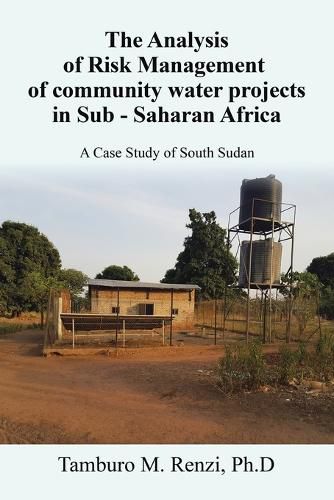Readings Newsletter
Become a Readings Member to make your shopping experience even easier.
Sign in or sign up for free!
You’re not far away from qualifying for FREE standard shipping within Australia
You’ve qualified for FREE standard shipping within Australia
The cart is loading…






This title is printed to order. This book may have been self-published. If so, we cannot guarantee the quality of the content. In the main most books will have gone through the editing process however some may not. We therefore suggest that you be aware of this before ordering this book. If in doubt check either the author or publisher’s details as we are unable to accept any returns unless they are faulty. Please contact us if you have any questions.
Projects implementation in many Sub Saharan countries are always established to allieviate perceived need. In the case of water, the aim is to provide clean safe water to communities in needs. In most rural areas and in conflict prone areas, such kind of projects face enormous challanges. South Sudan have been in war for decade and sectorian conflict affect many communities living in the rural areas. A number of factors affect the management of community water projects. Some of these risk factors are associated with conflict and continued political unrest in many sub saharan Africa. The most striking ones include competition among water service providers, use sub-standard equipment, political leaders interferences, limited finances, insufficient use of existing policies, incomplete project implementation and poor governance.
The book is derived from a study carried in order to identify, analyse and respond to risks arising either positively or negatively that affect the water projects rendering community at risk.
A mixed research methods that involved both primary and secondary data sources was used to collect data for this book. A purposive sampling method used utilizing semi-structured questionnaires and interviews in order to collect releveance data and analyze the risks involved in the community water project in South Sudan.
Successsful community water projects require holistic approach that should involves all the stakeholders, strengheneing institutional capacity and enactment of better laws and regulations including contract laws. In addition the use of modern business tools and techniques including cost management, operational management, risk management and project management can greatly enhance the performance of the community water projects.
$9.00 standard shipping within Australia
FREE standard shipping within Australia for orders over $100.00
Express & International shipping calculated at checkout
This title is printed to order. This book may have been self-published. If so, we cannot guarantee the quality of the content. In the main most books will have gone through the editing process however some may not. We therefore suggest that you be aware of this before ordering this book. If in doubt check either the author or publisher’s details as we are unable to accept any returns unless they are faulty. Please contact us if you have any questions.
Projects implementation in many Sub Saharan countries are always established to allieviate perceived need. In the case of water, the aim is to provide clean safe water to communities in needs. In most rural areas and in conflict prone areas, such kind of projects face enormous challanges. South Sudan have been in war for decade and sectorian conflict affect many communities living in the rural areas. A number of factors affect the management of community water projects. Some of these risk factors are associated with conflict and continued political unrest in many sub saharan Africa. The most striking ones include competition among water service providers, use sub-standard equipment, political leaders interferences, limited finances, insufficient use of existing policies, incomplete project implementation and poor governance.
The book is derived from a study carried in order to identify, analyse and respond to risks arising either positively or negatively that affect the water projects rendering community at risk.
A mixed research methods that involved both primary and secondary data sources was used to collect data for this book. A purposive sampling method used utilizing semi-structured questionnaires and interviews in order to collect releveance data and analyze the risks involved in the community water project in South Sudan.
Successsful community water projects require holistic approach that should involves all the stakeholders, strengheneing institutional capacity and enactment of better laws and regulations including contract laws. In addition the use of modern business tools and techniques including cost management, operational management, risk management and project management can greatly enhance the performance of the community water projects.